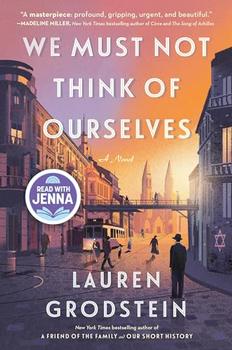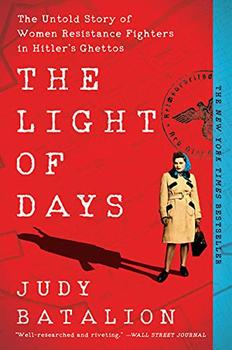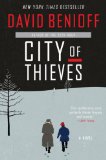Summary | Excerpt | Reading Guide | Discuss | Reviews | Beyond the book | Read-Alikes | Genres & Themes | Author Bio

Critics' Opinion:
Readers' Opinion:
First Published:
Nov 2023, 304 pages
Paperback:
Oct 29, 2024, 320 pages
 Book Reviewed by:
Book Reviewed by:
Kim Kovacs
Buy This Book
On September 1, 1939, Hitler's forces invaded Poland. His administration established the Warsaw Ghetto, a fenced and guarded area of Warsaw to which all Poland's Jews were forced to relocate just over a year later. At its height it was inhabited by approximately 460,000 people, about 85,000 of whom were children. As conditions in the Ghetto deteriorated, a Jewish Polish historian, Dr. Emanuel Ringelblum, recruited people to create a secret record of the lives of the incarcerated Jews, an effort that became known as the Oneg Shabbat Project (see Beyond the Book). Novelist Lauren Grodstein uses this real-life archive as a basis for her book We Must Not Think of Ourselves.
Adam Paskow, who narrates the novel, is a 42-year-old widower. As the book opens, he's been recruited by Ringelblum to join the project. "Our task is to pay attention," Ringelblum tells him, "...

BookBrowse's reviews and "beyond the book" articles are part of the many benefits of membership and, thus, are generally only available to subscribers, including individual members and patrons of libraries that subscribe.
Join Today
If you liked We Must Not Think of Ourselves, try these:

by Judy Batalion
Published 2022
One of the most important stories of World War II, already optioned by Steven Spielberg for a major motion picture: a spectacular, searing history that brings to light the extraordinary accomplishments of brave Jewish women who became resistance fighters - a group of unknown heroes whose exploits have never been chronicled in full, until now.

by David Benioff
Published 2009
A writer visits his retired grandparents in Florida to document their experience during the infamous siege of Leningrad. His grandmother won't talk about it, but his grandfather reluctantly consents. The result is the captivating odyssey of two young men trying to survive against desperate odds; an intimate coming-of-age tale with an utterly ...




The dirtiest book of all is the expurgated book
Click Here to find out who said this, as well as discovering other famous literary quotes!
Your guide toexceptional books
BookBrowse seeks out and recommends the best in contemporary fiction and nonfiction—books that not only engage and entertain but also deepen our understanding of ourselves and the world around us.